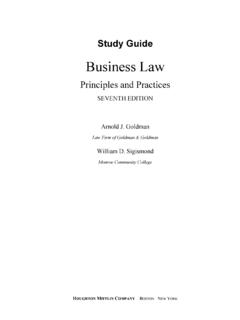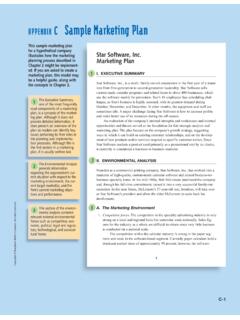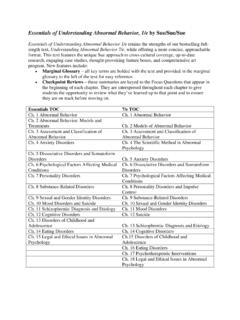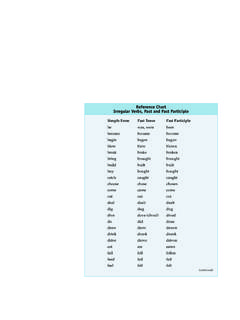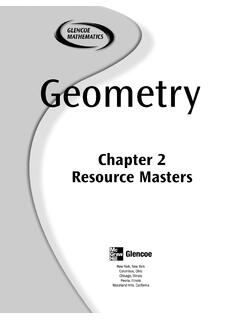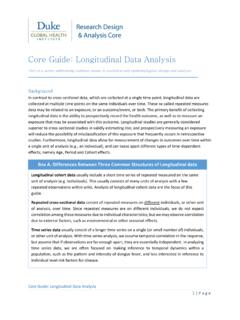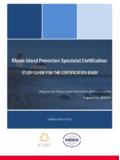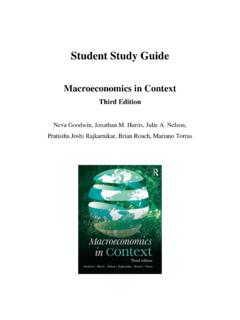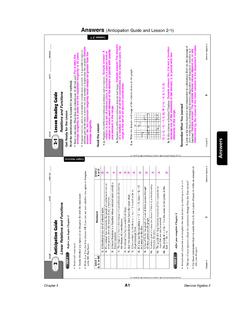Transcription of THE CHALLENGE OF DEMOCRACY - Cengage
1 HOUGHTON MIFFLIN COMPANY BOSTON NEW YORK study guide THE CHALLENGE OF DEMOCRACY NINTH EDITION Kenneth Janda / Jeffrey M. Berry / Jerry Goldman updated by Kevin T. Davis North Central Texas College Publisher: Suzanne Jeans Senior Sponsoring Editor: Traci Mueller Development Editor: Lisa Kalner Williams Editorial Assistant: Tiffany Hill Executive Marketing Manager: Nicola Poser Marketing Associate: Karen Mulvey Copyright 2008 by Houghton Mifflin Company. All rights reserved. No part of this work may be reproduced or transmitted in any form or by any means, electronic or mechanical, including photocopying and recording, or by any information storage or retrieval system without the prior written permission of Houghton Mifflin Company unless such copying is expressly permitted by federal copyright law.
2 Address inquiries to College Permissions, Houghton Mifflin Company, 222 Berkeley Street, Boston, MA 02116-3764. Printed in the ISBN 10: 0-618-87449-6 ISBN 13: 978-0-618-87449-1 123456789-XX-10 09 08 07 06 Copyright Houghton Mifflin Company. All rights reserved. Contents CHAPTER 1 FREEDOM, ORDER, OR EQUALITY?.. 1 CHAPTER 2 MAJORITARIAN OR PLURALIST DEMOCRACY ? .. 13 CHAPTER 3 THE 22 CHAPTER 4 33 CHAPTER 5 PUBLIC OPINION AND POLITICAL 43 CHAPTER 6 THE MASS 52 CHAPTER 7 PARTICIPATION AND 64 CHAPTER 8 POLITICAL 74 CHAPTER 9 NOMINATIONS, CAMPAIGNS, AND 83 CHAPTER 10 INTEREST 92 CHAPTER 11 102 CHAPTER 12 THE 113 CHAPTER 13 THE 122 CHAPTER 14 THE 132 CHAPTER 15 ORDER AND CIVIL 143 CHAPTER 16 EQUALITY AND CIVIL 154 CHAPTER 17 165 CHAPTER 18 ECONOMIC 174 CHAPTER 19 DOMESTIC 184 CHAPTER 20 GLOBAL 194 Copyright Houghton Mifflin Company.
3 All rights reserved. Preface Designed to accompany the ninth edition of The CHALLENGE of DEMOCRACY , this study guide will help you succeed in your American Government course whether you are taking it to plan a political career, fulfill a requirement, or become a more politically active citizen. The study guide is designed to help you succeed by encouraging you to: 1. Synthesize the main points in each chapter in the book. 2. Examine current issues relating to each chapter by focusing on useful textbook pedagogy. 3. Identify the learning objectives in each chapter. 4. Define the key terms used in the book.
4 5. Test yourself with sample questions to prepare for exams. 6. Research interesting political topics on the web on your own. SYNTHESIZING THE MAIN POINTS One of the main purposes of the study guide is to summarize the main points of each chapter. Its purpose is not to replace the textbook but to supplement it. To get the best results, you need to read the textbook and then read the study guide to grasp the key points of each chapter. Pay special attention to the titles and subtitles used in the study guide to identify and understand important key concepts. OPENING VIGNETTES, POLITICS IN A CHANGING AMERICA, AND COMPARED WITH WHAT In the textbook, pay attention to each chapter s opening vignette to understand important events in national politics and then try to relate it to the chapter s core material.
5 Pay special attention to the Politics in a Changing America and Compared with What boxes in the textbook. The Politics in a Changing America cover important new issues faced by American government, while the Compared with What boxes contrast the United States and other industrialized countries of the world. The study guide will help you synthesize important issues by summarizing material covered in these textbook boxes. LEARNING OBJECTIVES Each chapter begins with a list of learning objectives to help you understand the rationale and the goal of each chapter so that you may evaluate for yourself whether you know the material well.
6 KEY TERMS At the end of each chapter in the textbook, there are key terms that you should learn. The study guide defines the terms in an easy-to-understand and abbreviated format so that you can easily comprehend and retain them. The key terms are selected on the basis of their importance to the chapter. If you have a grasp of the terms, you will retain the chapter concepts for a longer time. vi Preface Copyright Houghton Mifflin Company. All rights reserved. SAMPLE QUESTIONS The study guide includes both multiple-choice and essay sample exam questions. Using the sample questions, you can test yourself to see if you are familiar with some of the important issues in the chapter.
7 Of course, the sample questions do not include all the possible questions in a chapter, but they do focus on many of the key issues in the chapter. The essay questions are designed to promote your critical thinking skills and to prepare you for thoughtful participation in classroom discussions. It is important for you to try to participate actively in class discussions. Instructors often assign points for participation in class. A guide FOR FURTHER RESEARCH AND INFORMATION The study guide also serves as a source for further research and information if you are interested in researching a particular topic relating to American government.
8 Many instructors will require you to write a short research paper. The study guide will direct you toward important sources for beginning your research. The study guide provides a list of useful websites for each chapter. BEYOND THE TEXTBOOK Also important to your success in the American Government course is keeping abreast of the major events in American and world politics. One way to keep up with such events is to read newspapers on a regular basis. You might try the New York Times, the Washington Post, or any other major newspaper. In addition, you should try to develop a daily habit of watching the national news on television.
9 You can relate the political issues discussed in the media to the concepts covered in the textbook and thereby construct an informed and intelligent opinion on current political issues. Copyright Houghton Mifflin Company. All rights reserved. CHAPTER 1 Freedom, Order, or Equality? LEARNING OBJECTIVES After reading this chapter you should be able to Define the key terms at the end of the chapter. Describe the ways that globalization has affected government in the United States. Give practical examples of ways in which the values of freedom, order, and equality may conflict.
10 Provide a conceptual framework for analyzing government. Discuss the three major purposes of government. Explain the two dilemmas of government. Sketch a continuum of ideological stances on the scope of government, ranging from totalitarianism to anarchism. Construct a two-dimensional, fourfold classification of American political ideologies, using the values of freedom, order, and equality. Distinguish between liberals and conservatives with regard to their attitudes about the scope and purpose of government. FREEDOM, ORDER, AND EQUALITY, OR THE CHALLENGE OF DEMOCRACY Chapter 1 explores the meaning of three of the text s five major themes: freedom, order, and equality.
